DUBAI: Seeing their children receive the best possible education is every parent’s dream, and having a high number of international students is a goal for every world-renowned tertiary institution. However, in today’s changing world, various factors complicate the decision-making process for students and parents.
Parents have to take many issues into account, from the COVID-19 pandemic to the wave of shootings on school campuses in the US. As the education landscape shifts, some Western institutions have opened branches in foreign countries, including the Gulf region, appealing to students who do not wish to, or cannot afford study abroad.
These days a growing number of Arab parents, including Saudis, deliberate thoroughly before sending their children to pursue their higher studies in the US — home to some of the most prestigious education institutions and research centers in the world. Analysts and experts say that the rose-colored dream of studying in the US has started to change slightly owing to a confluence of academic, social, economic and security factors.
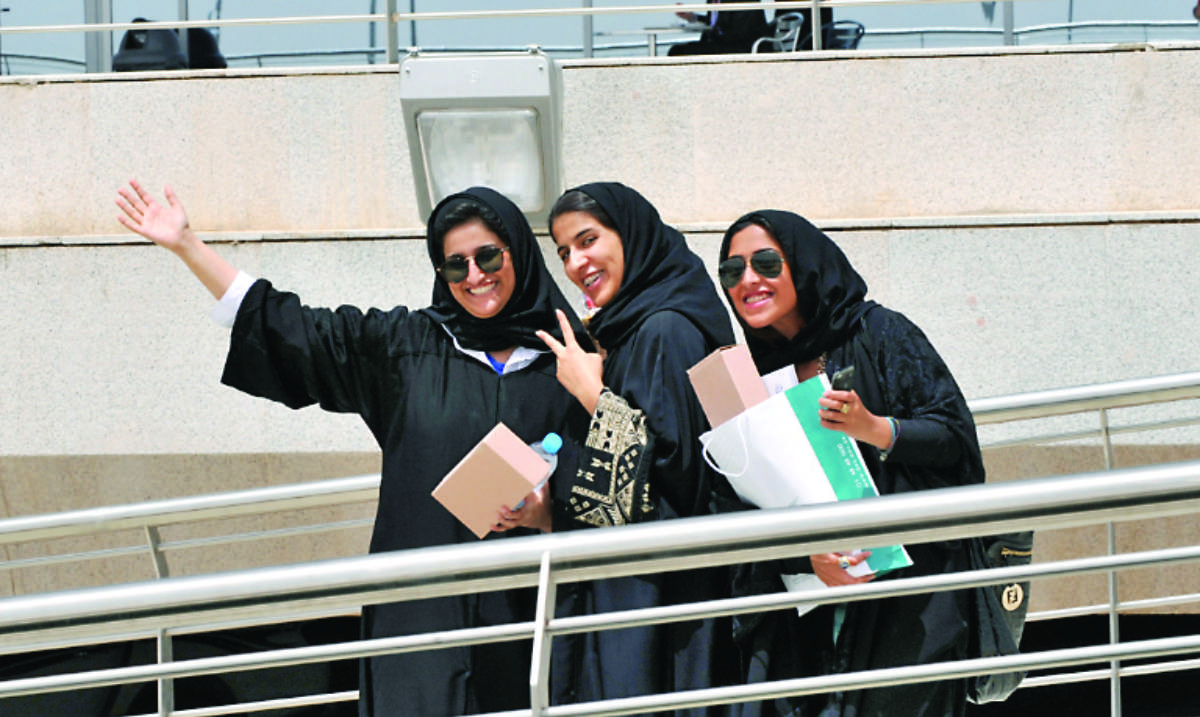
Members of the Saudi Cultural Club at the University of Utah celebrating the Saudi National Day. (Supplied/File photo)
“If you look at it (number of students from Saudi and the rest of the Gulf region) in the span of the last … for example, 10 years, yes it has changed. If you look at it since COVID, yes it has changed. There isn’t a (hugely) significant decrease in the numbers, but there is a decrease,” Dala Kakos, an education strategy specialist, told Arab News.
Kakos, who has worked with the World Bank and the Executive Council in Abu Dhabi, and Knowledge and Human Development Authority in Dubai, says that while a sense of safety and security is not the most important factor for students and parents, it is among the highest priorities.
Saudi columnist Tariq Al-Maeena also believes the number of Saudi students in the US has decreased. “The impression of the numbers had been gleaned by what I had been following over the recent years as well as discussions with a wide group of friends and acquaintances,” he told Arab News.

Members of the Saudi Cultural Club at the University of Utah celebrating the Saudi National Day. (Supplied/File photo)
“Already some Saudi students (unfortunately) met a tragic end in the US at the hands of criminals.”
In January this year, 25-year-old computer science student Al-Waleed Al-Gheraibi was stabbed to death in his accommodation in Philadelphia. This was only the latest incident in which a Saudi student was murdered in the US. In 2018, 23-year-old architecture student Yasser Abualfaraj was found murdered in his apartment in Florida.
HIGHLIGHTS
• The increasing number of violent incidents in the US and high cost of tuition are two factors that could stop parents from sending their children abroad.
• Some Western institutions have opened branches in foreign countries, including the Gulf region, appealing to students who do not wish to, or cannot afford to study abroad.
• Saudi Arabia is one of the top countries from the Middle East and North Africa region in terms of number of students studying in the US, while China and India lead on the global level.
And two years prior, 24-year-old business administration student Hussain Saeed Alnahdi was beaten to death in Wisconsin. Other murders of Saudi students in the past decade were reported in Australia, Canada, the UK and Malaysia, according to a press report by Al Arabiya.

Dala Kakos, Education strategy specialist
The increasing number of violent incidents in the US is a worry for prospective students and parents. From 1966 to 2022, 12 mass shootings took place on US college campuses. During the same period, there were 300 shooting incidents on college campuses, resulting in 94 deaths and 215 injuries, according to American press reports.
Some Europe-based websites are currently posting short videos advising European students abroad on what to do during a shooting.
Al-Maeena believes this is good advice for all students. “We live in a relatively safe society; we are not conditioned to be wary and alert, and sometimes we fall prey to those wishing us harm,” he told Arab News.
Prestige is a very heavy factor when someone is an international student and they want to go abroad. This is a big thing because you are making a big effort to leave, you will be representing your country when you are there, and you also will be representing the university when you come back home.
Dala Kakos, Education strategy specialist
“That is why it is imperative that any student going overseas must attend some kind of awareness seminar to alert them (to) all possible scams that may do them harm,” he said.
The exact number of Saudis currently pursuing their higher education in the US is unknown, but it is estimated in the tens of thousands. There has been an increase in the past, with the number of Saudis studying in the US rising from 10,000 in 2007 to 120,000 in 2015, with 600 taking up medicine.
Saudi Arabia is one of the top countries from the Middle East and North Africa region in terms of number of students studying in the US, while China and India lead on the global level. But even this is changing.
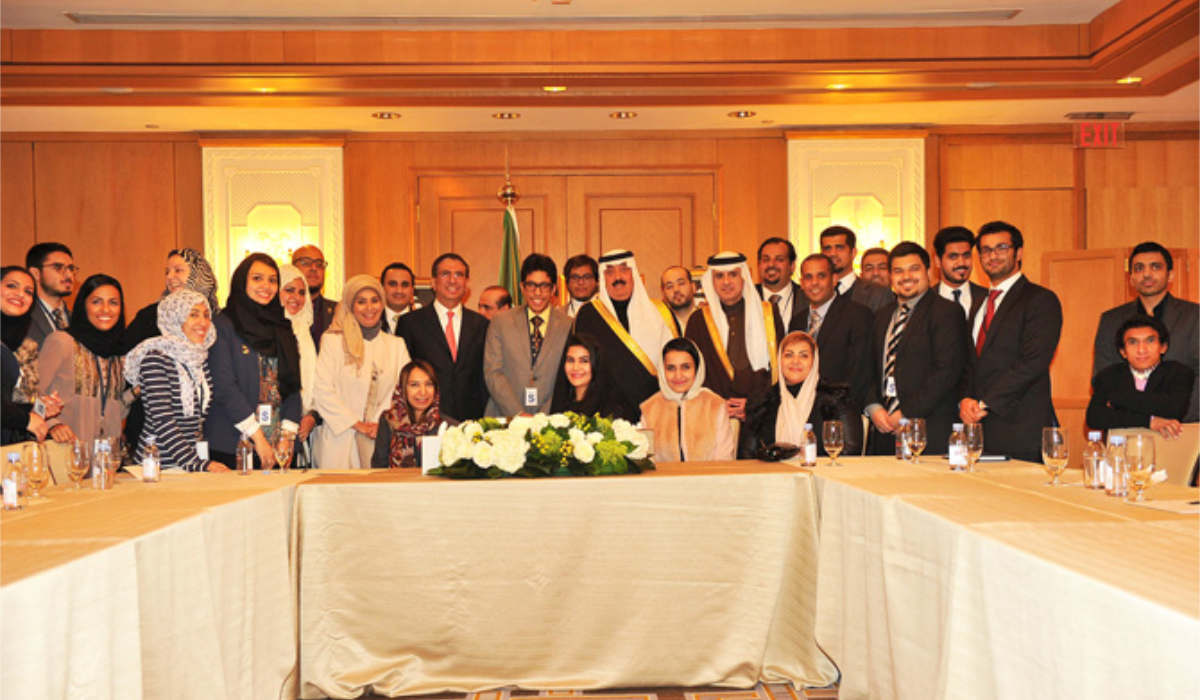
Saudi Scholarship students with Saudi officials during an event at the Saudi Embassy in Washington D.C. (SPA file photo)
According to the Institute of International Education, the number of international students at US colleges grew by just 0.5 percent in the 2018-2019 academic year, “bringing an end to a decade of expansion.”
The results, posted on the website of Foreign Policy, were due to a “slowdown” in the number of Chinese students, who accounted for nearly one-third of all non-American students in the country. Other countries, including South Korea, Japan, Iran, the UK and Saudi Arabia, also “sent fewer students to the US” that year compared to the previous one.
The number of Saudi students in the US has gone down after the Saudi government decided in 2016 to “reevaluate” its scholarship program that covers many countries in the world, including the US. New guidelines were introduced limiting participants to top-100 universities, or top-50-rated programs in their fields.
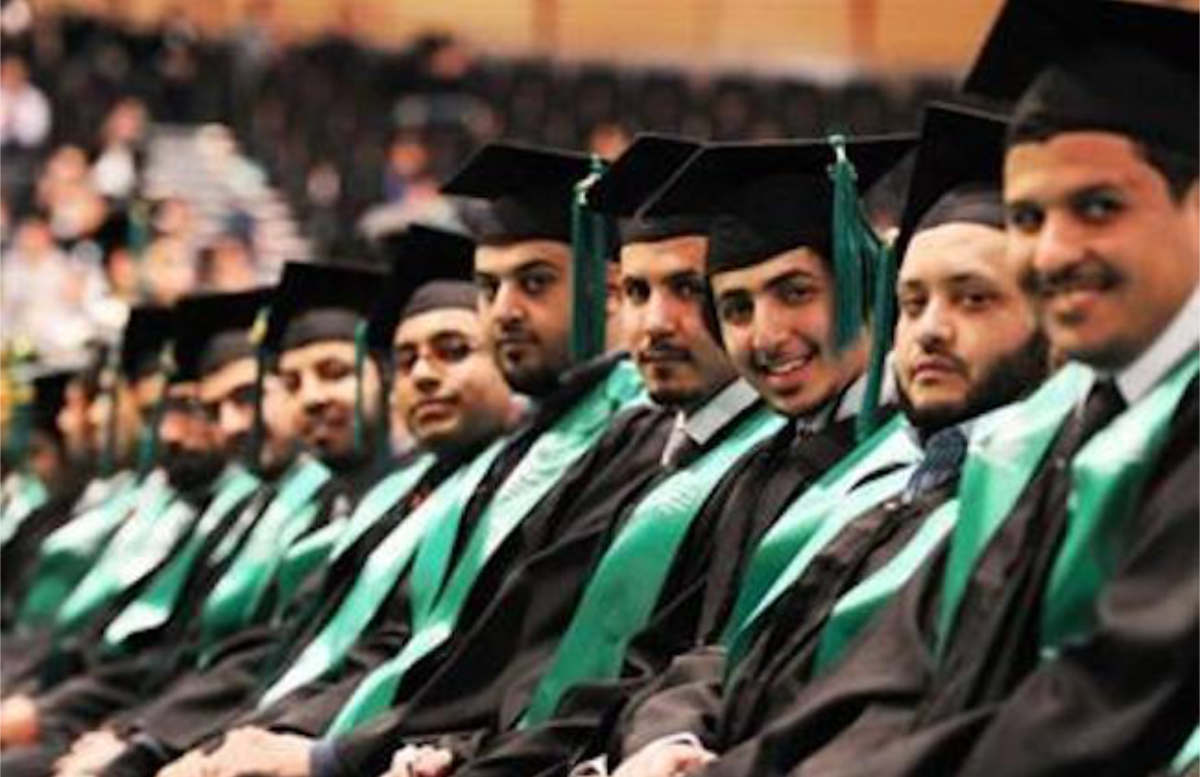
Saudi scholarship students abroad. (SPA)
The high cost of tuition is another factor that could stop parents from sending their children abroad, according to Kakos.
According to her, other factors include tuition, location, proximity of relatives living abroad, having alumni parents, and prestige.
“Prestige is a very heavy factor when someone is an international student and they want to go abroad. This is a big thing because you are making a big effort to leave, you will be representing your country when you are there, and you also will be representing the university when you come back home,” Kakos said.
Owing to its many renowned universities, the UK is always an option for parents. By offering English-language degrees, the US and UK are ideal destinations for those seeking to study abroad.
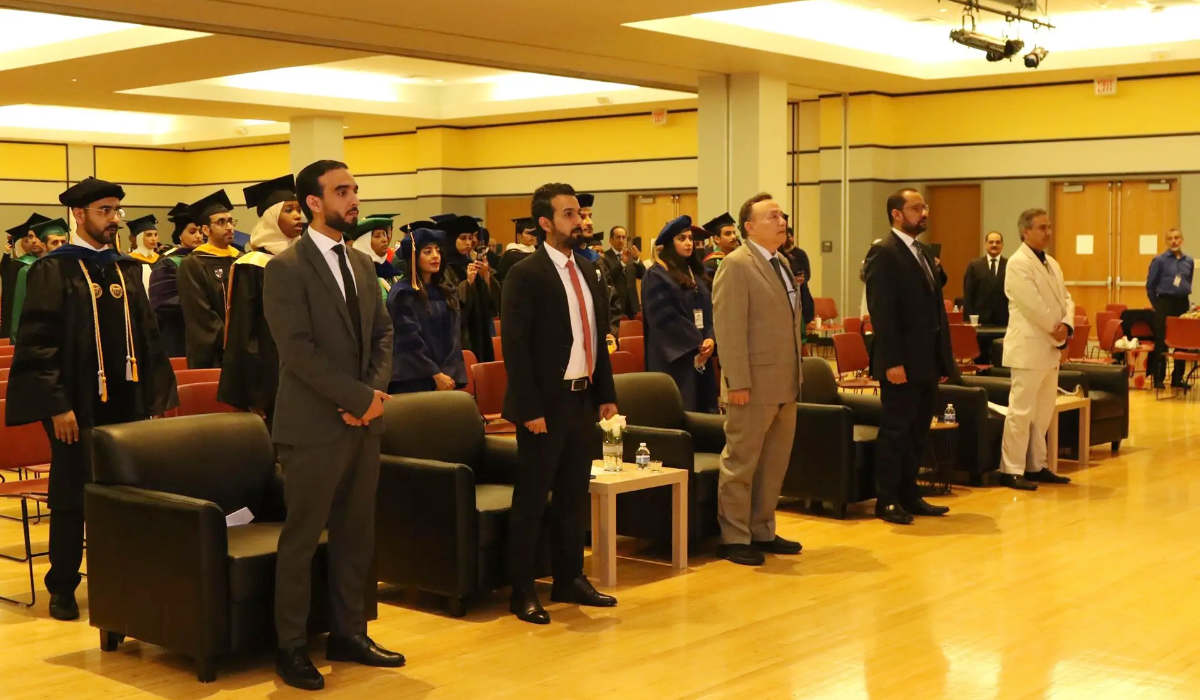
Saudi Scholarship students with officials during a graduation ceremony in the US. (SPA)
“Interestingly, there is an upward trend of European universities offering English-speaking degrees,” Kakos said. “Already, many of them are constantly increasing their postgraduate and master’s and doctoral programs. But now, they (have) started to pay attention to undergraduate programs. For example, Greece just announced that their national universities have put forth at least 12 new majors in English.”
At the same time, the UK has made attracting foreign students part of its national strategy. The country recently organized official academic visits to both Saudi Arabia and the UAE to draw in more students and increase their “market share,” Kakos said.
“They know the true value that they could bring, which is financial, but also need more presentation in their international students. They are focusing much more on gaining more international students, specifically from Saudi Arabia. They voiced that and they are pursuing that currently.”
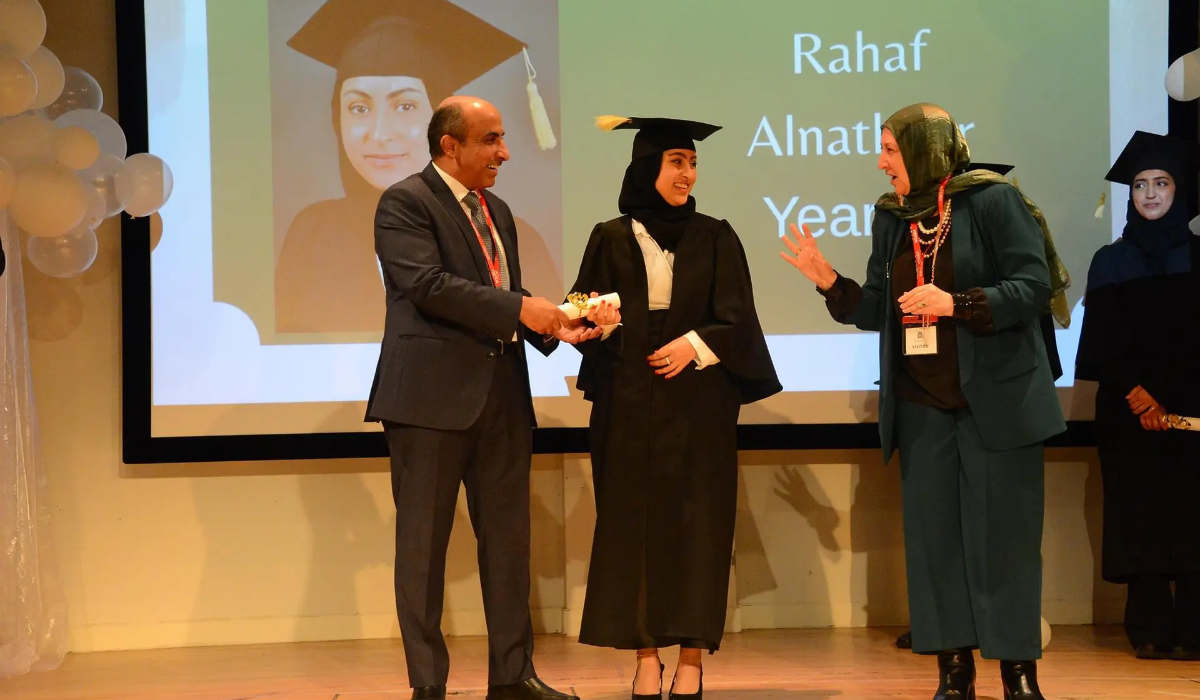
There has been an increase in the past, with the number of Saudis studying in the US rising from 10,000 in 2007 to 120,000 in 2015, with 600 taking up medicine. (Supplied)
Other options include Germany, Australia, and even Japan, despite the language barrier.
Al-Maeena said “options are unlimited” when it comes to education. Usually, the decisions “will be influenced by the student’s family and past historical experiences. I know of one parent who graduated from Japan some decades ago, and now has influenced his children to obtain their higher studies there.”
The UK, which is the second-most popular study destination after the US and home to the prestigious Oxford and Cambridge universities, is receiving an increasing number of Saudi students, said Abigail Davenport, head of Strathclyde Business School’s branch in the UAE.
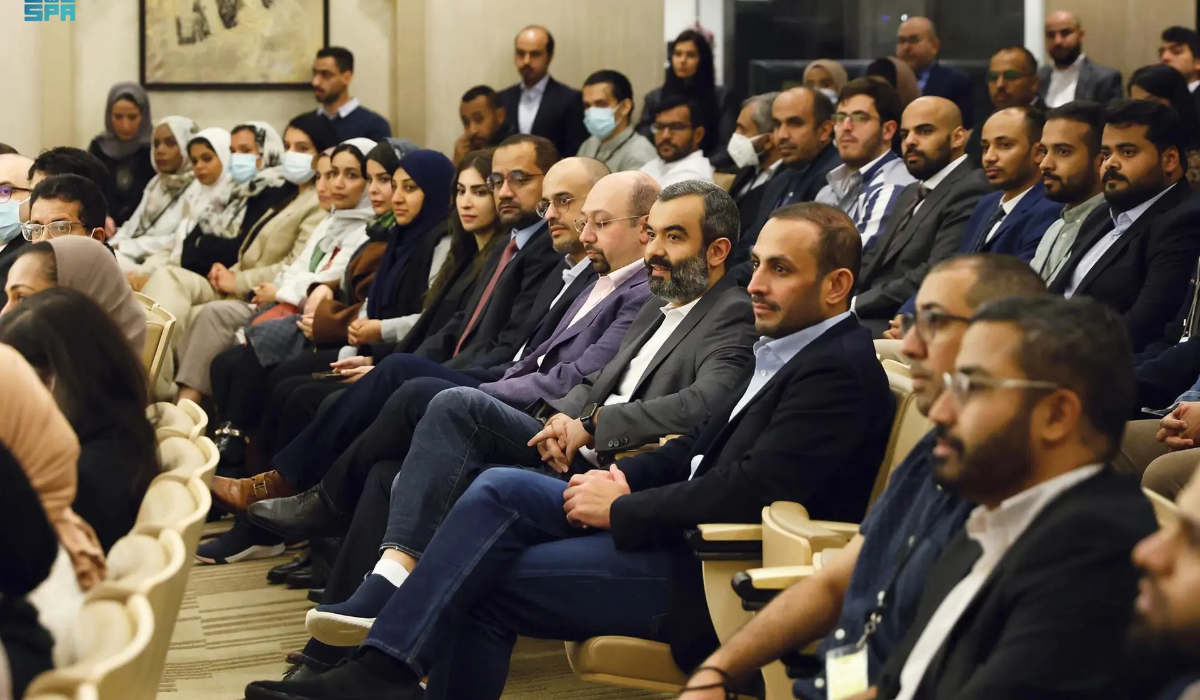
Saudi Scholarship students with Saudi officials in US. (SPA)
“Over the years, leaders of GCC countries have strived for knowledge-based economies, and have made great strides in developing social, economic and education infrastructures … Strathclyde has excellent relations with Saudi Arabia, in particular across public and private sectors, as well as a long history of welcoming Saudi students to the main campus in Glasgow,” she said.
“The UK is incredibly diverse, and international students will get the chance to experience a multicultural environment whilst still maintaining strong ties to their own culture,” she told Arab News in a statement.
According to recent available figures from the Higher Education Statistics Agency, during the 2020-2021 academic year, there were 3,310 new Saudi students studying in the UK, of which 1,045 were undergraduates, 1,620 postgraduates, and 645 doctoral students.
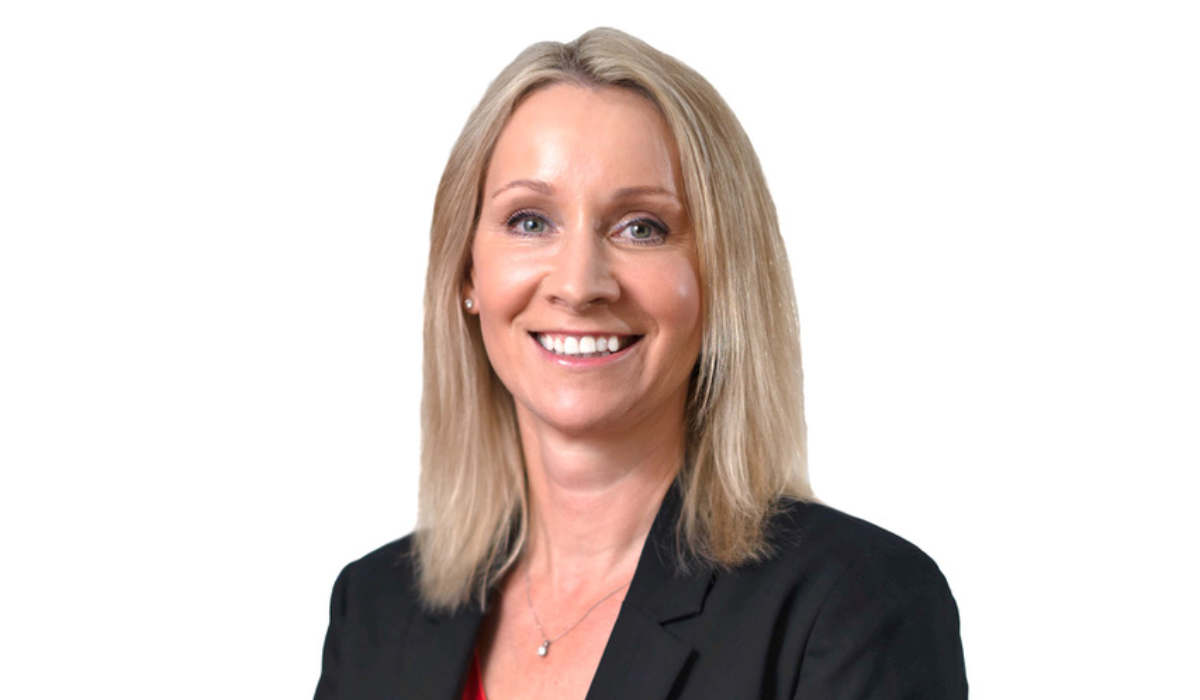
Abigail Davenport, Head of Strathclyde Business School in the UAE. (Supplied)
In total, the number of Saudi students studying at UK institutions almost doubled from the 2019-2020 to 2020-2021 academic years, according to British Council figures. Of the 14,070 current Saudi students connected with UK higher education, 11,850 are studying at institutions, 2,000 are enrolled in distance, flexible or distributed learning, and a minority are studying at overseas branch campuses.
The opening of overseas branch campuses is “definitely needed” and “a good strategy,” Kakos said, as it caters to students who cannot or do not want to travel abroad. She added that a “blended learning” experience, where studies are divided between physical classes and online learning, is also becoming a huge trend.
Studying abroad, according to Kakos, has many benefits, including new experiences, research potential, and access to extracurricular activities that may not be available in one’s home country.
The students “stand to gain a lot but, at the same time, branch campuses coming into the country would also be able to give a lot more value to the overall educational landscape and the options available to students in Saudi Arabia and the GCC in general.”





























